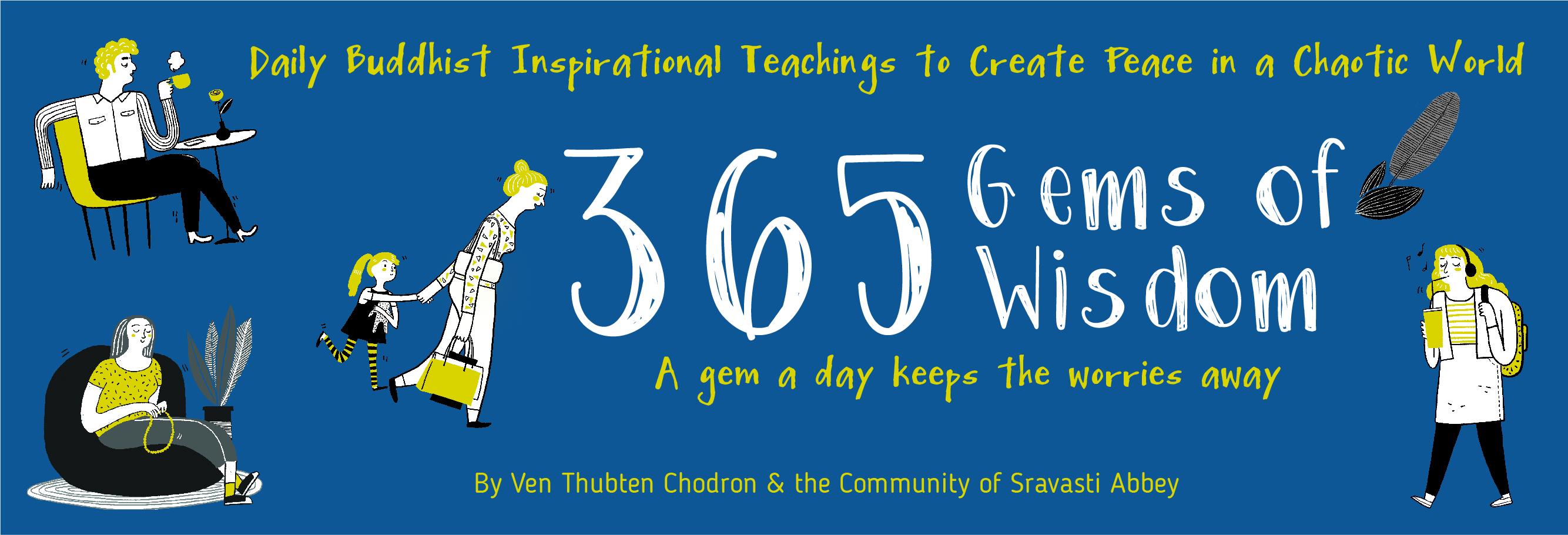January 23 : Avoiding Bad Friends
When you keep their company your three poisons increase, your activities of hearing, thinking, and meditating decline, and they make you lose your love and compassion. Give up bad friends. This is the practice of Bodhisattvas.
One of my teachers, Geshe Ngawang Dhargyey, used to point out that bad friends are not people with horns on their heads and evil scowls hooking us on skewers. Rather, they are simply people who only think about the happiness of this life. Even if they know about their future lives, it is not important to them. They say things like, “Why are you going to a retreat? You are just going to sit on a cushion and look at your belly button all day.” Other bad friends might say to us, “A retreat’s okay, but come out to the movies with us too. Don’t be so extreme in what you’re doing.” These people may really love us and care for us, but because they do not understand karma and rebirth, their whole way of helping us focuses on only the happiness of this life — “Find a nice partner, settle down, have a good career, and get that car you always wanted, that will make you happy.”
Another kind of bad friend is someone who does not have good ethical standards, whose influence leads us to break our precepts and get involved in the ten non-virtues. They encourage us to do things like retaliate against those who have harmed us, break company rules when the boss is not around, conceal information on our income taxes, and watch pornography or violent movies. Very often these are people we have been friends with for a long time. Our old drinking and drugging buddies turn out to be bad friends from a Dharma viewpoint because our three poisons increase when we keep their company.
All this can happen in a very subtle way, and we are not even aware of it until we suddenly realise we stopped doing our morning practice a few weeks ago, and are spending more time in front of the video screen than reading Dharma books. Gradually our activities of hearing, thinking, and meditating 36 | January decline and we lose love and compassion because these friends encourage our anger and self-centredness. The remedy is to develop some discriminating wisdom that helps us distinguish a good friend from a bad friend. We need to be very conscientious about who we hang out with because it makes a huge difference to our practice.
“365 Gems of Wisdom” First Volume (January — March) e-book is out now!

